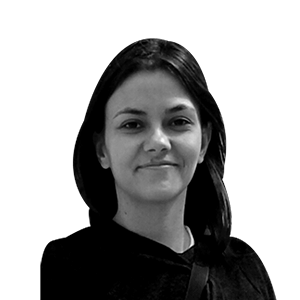The enigma of Leo XIV
The pontiff maintains a low-profile and appears cautious and reflective, as he explains in his first interview.


RomeMore than four months have passed since the white smoke from the Sistine Chapel announced the election of a new pope, and even today, few in the Vatican dare to draw a more or less accurate profile of Leo XIV. American journalist Elise Ann Allen, Rome correspondent for the Catholic newspaper I creak, he does it in the book Leo XIV: citizen of the world, missionary of the 21st century, which includes the first interview with Robert Prevost since his election to the Chair of Sant Pere.
"He's a very simple, calm person. He doesn't seek out attention; he's friendly, sincere, and very intelligent," says Allen, who interviewed the Pope this summer at his summer residence in Castel Gandolfo and at the Vatican's Apostolic Palace.
The veteran correspondent met Robert Prevost in Peru—he was then archbishop of the diocese of Chiclayo—when she was investigating abuse within the Peruvian-born ultra-Catholic group, Sodalitium of Christian Life, which was dissolved by Pope Francis shortly before his death, considering the organization to be acting like a sect. After Prevost's election as pope, Allen decided to write his first biography and asked him for an interview to complete the book. "Surprisingly, he accepted."
In the volume, which was published this week in Peru and will be available in Spanish bookstores in October through Debate, Leo XIV claims a line of continuity with his predecessor, but without making drastic changes to doctrine. The Pope presents himself as a prudent and thoughtful leader. He makes it clear that he has no intention of ordaining women as priests and, at the same time, assures that he will welcome all the faithful, including LGBTQ+ Catholics. He defends that marriage is "between a man and a woman" and defines the family as "father, mother, and children."
Discretion
"His main concern is the wars in the world and the divisions between Catholics, between society, how the world is so polarized and how this breaks humanity - revealed the journalist -. He has a clear vision of what he wants to do, he knows how to get ahead and advance projects without making too much noise, he is efficient, honest and transparent, he always tried to give me.
Since his election, Leo XIV has not stopped condemning the war in Ukraine and the "horrible" Israeli offensive in Gaza, which he refuses to define as genocide. "Officially, the Holy See does not believe that we can make any statement on this matter at this time. There is a very technical definition of what genocide could be," he explained to the book.
Unlike his predecessor, Leo XIV has preferred to stay in the background of the media since his election; he does not make big headlines or improvise speeches, he did not even appear at the historic concert for "human fraternity" held at the Vatican with international artists such as Karol G. However, he maintains a busy schedule, which led him to receive the president of Israel, Isaac Herzog, after the denunciations against the massacre by the Israeli army, the Holy See and Tel Aviv.
But, as he warns in his first interview, Leo XIV does not see himself as an international leader who has to solve the world's problems or interfere in the internal politics of any country, especially his own. "I do not plan to get involved in partisan politics. "The Church is not about that," he said in response to a question about US President Donald Trump.
Last week, the Pontiff presented credentials to Washington's new ambassador, Brian Francis Burch. A billionaire businessman, leader of the ultraconservative group Catholic Vote. "A devout Catholic and father of nine children," Trump described him. One piece of news was that he seems to be putting behind him the clashes Francis had with the White House resident over his immigration policy.
Until now, the Pontiff has kept the top officials in the Vatican dicasteries and bodies appointed by his predecessor, but it is expected that in the coming months he will begin to outline the outline of his pontificate with the selection of new names. The most immediate, probably, will be his replacement at the head of the dicastery of bishops and the prefect of the Papal Household, the German Monsignor Georg Gänswein, who was also Benedict XVI's secretary, forced to resign by Francis and sent to the Baltic States as nuncio, is also preparing his first encyclical, a document in which he will reflect on poverty, according to specialized media reports, and which will be key to beginning to decipher the enigmatic Leo XIV.
